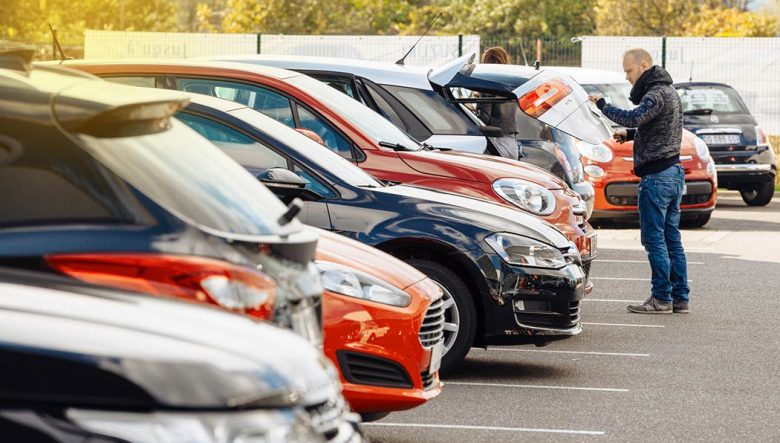#AD. In the interest of disclosure and transparency, the syndication of this article has been provided and paid for by FBD Insurance.
Buying a Used Car? Six Questions You Need To Ask
Most of us will buy a used car at some stage in our lives, whether it’s a starter car for college, a fuel-efficient saloon for the commute, or a seven-seater MPV for an expanding family. Regardless of whether you’re buying privately or through a dealer, purchasing a car can be a little overwhelming, with thousands of options available online or in garage forecourts. It can help to stay focused on certain priorities, though. To help guide you through the process, we’ve compiled six questions you need to ask when buying a used car in Ireland.
- Can I see the paperwork?
Going through the car’s service history can offer major clues as to how the car performs and how it was treated in the past. Was it serviced regularly? Were there any big jobs carried out, like an engine replacement? Does the mileage on the service stamps correspond with the current mileage on the clock? A good service history is a great indicator that the car was well-maintained, which should reduce your risk of incurring mechanical problems. It might also save you money – if your mechanic has a record of certain parts being changed in the past, he or she can use this information to better diagnose and fix problems in the future. You’ll also want to make sure the seller has the logbook in hand and is legally allowed to sell the car to you.

- Does the car have any outstanding finance?
You should always ask the dealer or seller this question, but also to do your own checks as well, to verify the information. There are many online vehicle history check companies who will carry out a background check on the car and give you a full report for a small fee. These will usually include key data, such as if the car has any mileage discrepancies, how many owners it has had, or if there is any outstanding finance on it. This is particularly important because if there is a loan outstanding, the finance company may be able to repossess the car, and nobody wants that to happen.
- Has the car ever been in an accident?
The motor history report you ordered will conduct checks with car insurance companies to see if it has been involved in an accident. Sometimes the damage is categorised, from minor repairs all the way to write-offs. However, not all crash repairs are conducted via insurance; sometimes drivers will choose to get the car fixed privately and so the accident doesn’t appear in a report. For this reason, it’s important to ask the seller about any potential repairs in the past, and take a detailed look at the paintwork to see if it matches across all the panels, and if the doors and boot lid are flush when closed. The AA have put together a detailed check-list of potential clues you need to look for. Sometimes the previous damage is quite minor, and isn’t a big cause for concern, but it might affect the value of the car so it’s good to have all the information to hand.
- How many previous owners has the car had?
A car having multiple owners isn’t always an ominous sign: sometimes car ownership switches between spouses, siblings or even companies and this isn’t usually a cause for concern. However, more owners can mean more drivers, imperfect service histories, and potentially, more problems. It might also indicate that the car disappointed its previous owners somehow, and was moved on quickly. Asking the salesperson for any details they might have will help to shine some light on this: they might be able to explain that the previous owner(s) sold the car because they left the country, or got a company car, or simply traded up. You can double-check the number of previous owners by examining the logbook and carrying out a car history check as detailed above.
- Does it have a warranty?
Buying a car is exciting, and it’s easy to fall in love with the buffed metalwork, the fancy specifications and that freshly-valeted ‘new car’ smell. But it’s important to remember that underneath the gleaming bonnet lie hundreds, perhaps even thousands of mechanical and electrical components. It might only take one of these to fail, and your beautiful new car could come sputtering to a stop. Warranties are important safeguards against this: if the vehicle develops a problem, the dealer or seller undertakes to repair it. However, like most guarantees, there are lots of terms and conditions around warranties, and many problems aren’t covered, so it’s important to read through the paperwork carefully before you buy.
- Is there any room for discount?
This is a question that’s very common in the motor industry, so dealers won’t be offended. Sometimes they might be able to reduce the price, sometimes they won’t, but usually there’s a little wiggle room for a free service, a complimentary valet, a full tank of fuel or even a year’s free car tax. With a bit of luck – and a lot of negotiation – both you and the seller will agree on a price that suits you both, and everyone’s happy.
Once you’ve signed on the dotted line and have the keys in hand, the next step is contacting your car insurance company, as you’ll want to make sure you fully protect your exciting new purchase. Our experts will be delighted to help you get comprehensive, affordable car insurance, helping you hit the road with peace of mind.